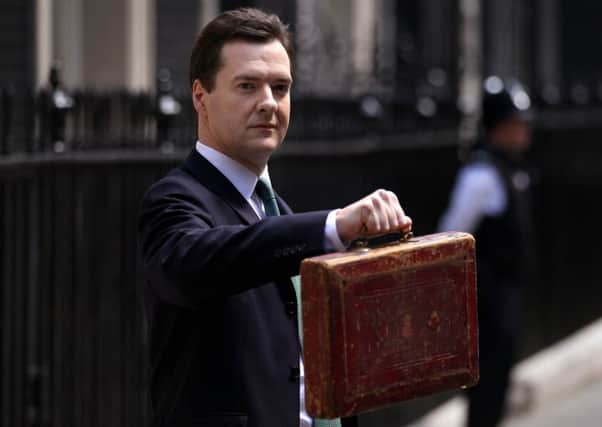Comment: Time to prepare for the Scottish tax rate


In his most recent Budget, the Chancellor confirmed that the previously pledged five-year “triple tax lock” would indeed go ahead.
The main objective of the measure is to guarantee UK taxpayers will encounter no increases in income tax rates; no increases in VAT (nor an extension of its scope); and no increase in national insurance rates for the duration of the current parliament.
Advertisement
Hide AdAdvertisement
Hide AdHowever, whilst this fiscal approach should create an era of stability for UK businesses, this will not necessarily be the case for “Scottish taxpayers”, who will soon be faced with the prospect of the Scottish Parliament actually determining the Scottish rate of income tax (SRIT).
The Scottish Parliament’s increased fiscal powers means the relationship between politics and the businesses community is becoming more complex. Business confidence was hugely affected by the uncertainty of the independence referendum and although the Scottish people chose to stay in the Union, fiscal change is coming that will impact on business leaders.
In practice, the SRIT will apply to “non-savings income of individuals who are Scottish taxpayers”, with a Scottish taxpayer defined as a UK resident having a “close connection to Scotland”. Importantly, once deemed to be a Scottish taxpayer, an individual will remain so for a whole tax year – there is no split-year treatment and it is not possible to be a “Scottish taxpayer” without being first a “UK taxpayer”.
The basic, higher and additional rate of income tax for Scottish taxpayers will be reduced by 10p below the prevailing UK rates. The Scottish Parliament then has to set a rate to replace the 10p that has been deducted. Enacting this process means income tax devolution will increase the administrative burden faced by employers.
Firstly, Scottish taxpayers could work anywhere in Britain and will require the application of the correct income tax rates “at source” (during payroll). This creates the need for different payrolls for different type of taxpayers to ensure the correct rate of income tax is applied. Employers will need to consider if their payroll system is capable of operating in this way or if a second system/upgrade will be required.
The definition of “Scottish taxpayer” could also cause issues in terms of tracking employees within the UK, particularly for those living near a border or travelling extensively between UK locations, such as those in the financial services industry who often split their time between Edinburgh and London with a residence in both locations. How do you actually track people if they don’t need a passport to cross border?
Contrary to popular belief, the SRIT is not actually a “devolved tax” at all. Instead, the UK government will retain control over the tax base, and the SRIT will be collected by HM Revenue & Customs. The Scottish Parliament will only be able to set the actual rate of Scottish income tax, along with the associated income thresholds. This only makes the SRIT a rate within an existing system.
Although the legislation is still to be fully agreed and enacted, greater devolution is now fast approaching and businesses need to start thinking about how this will impact them, particularly in their role as employers. Payroll systems must be assessed, employee residency situations determined, processes must be reviewed and expatriate policies redefined.
Devolution of income taxes is coming and will create complications for businesses in Scotland. The time to act is now.
• Stephanie Niven is associate director of tax at Grant Thornton in Scotland